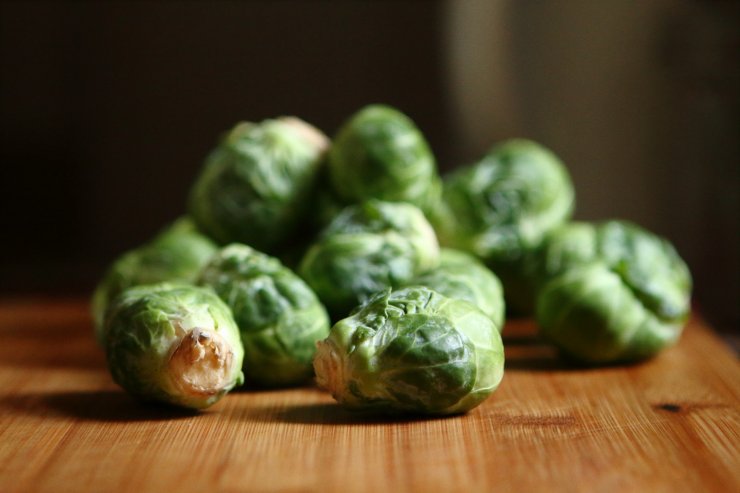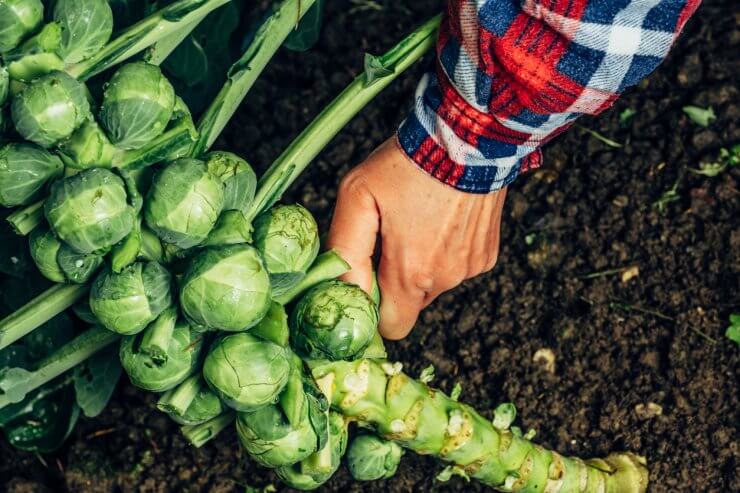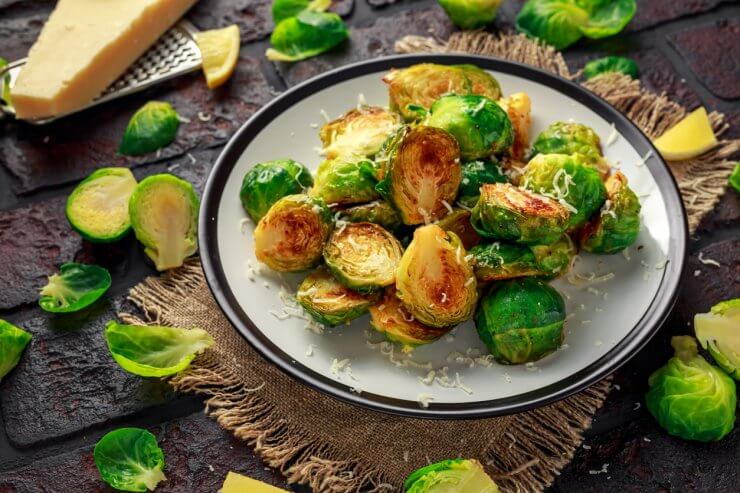
You know, after years of gardening, I thought I had it all figured out. My tomatoes were plump, my lettuce was crisp, and my herbs were fragrant. But there was one area where I kept stumbling: bitter vegetables. And let me tell you, bitter Brussels sprouts were at the top of that list.
It all started with cucumbers, actually. I’d be happily munching away on a fresh cucumber from my garden when suddenly – bam! – I’d bite into a bitter one. It was frustrating, to say the least. Then, at a local gardening club meeting, I heard about this weird trick: cut off the stem end of the cucumber and rub the sliced surfaces together until they foam. It sounded bizarre, but I was desperate enough to try anything.
To my surprise, it worked! Whether it was garden magic or just the power of suggestion, I suddenly found myself with tastier cucumbers. This little victory got me thinking – what other vegetable mysteries could I solve?
That’s when I turned my attention to Brussels sprouts. I’d always loved the idea of growing these mini cabbages, but the bitter taste had put me off for years. As I started researching, I realized I wasn’t alone. Bitter Brussels sprouts were a common complaint among gardeners and diners alike.
So, I dove headfirst into the world of Brussels sprouts. I experimented with different varieties, tweaked my soil composition, and tested various cooking methods. It’s been quite the journey, and I’ve learned a ton along the way. And now I get to share everything I’ve discovered about growing, preparing, and enjoying Brussels sprouts that are anything but bitter. Whether you’re a seasoned gardener or just starting out, I hope you’ll find some useful tips here!

The Science Behind Bitter Brussels Sprouts
The bitter flavor in Brussels sprouts comes from compounds called glucosinolates. These sulfur-containing chemicals are actually a defense mechanism for the plant, deterring pests and other threats. While they contribute to the characteristic flavor of Brussels sprouts, an excess can lead to that overwhelming bitterness that turns many people away from this nutritious vegetable.
Interestingly, the presence of glucosinolates isn’t all bad. These compounds are also responsible for many of the health benefits associated with Brussels sprouts, including their potential cancer-fighting properties. The key is finding the right balance – enough glucosinolates to provide health benefits and a pleasant flavor, but not so much that your Brussels sprouts become unpalatable.

Growing Brussels Sprouts: Tips to Minimize Bitterness
1. Choose the Right Varieties
Some Brussels sprout varieties are naturally less bitter than others. Look for cultivars like ‘Falstaff’, ‘Diablo’, or ‘Taste of Britain’, which are known for their sweeter, milder flavor profiles.
2. Timing is Everything
Brussels sprouts prefer cool weather, and exposure to frost can actually improve their flavor by converting starches to sugars. Plant your Brussels sprouts so they mature in late fall or early winter for the best flavor.
3. Soil and Nutrient Management
Proper soil management can go a long way in reducing bitterness in Brussels sprouts:
- Ensure your soil pH is between 6.0 and 6.5
- Provide consistent moisture throughout the growing season
- Avoid over-fertilizing with nitrogen, which can increase bitterness
- Consider adding sulfur to your soil, as it can help balance the flavor
4. Harvest at the Right Time
Don’t rush to harvest your Brussels sprouts. Wait until they’re fully mature and have been exposed to a light frost or two. This patience can result in sweeter, less bitter sprouts.

Kitchen Tricks for Taming Bitter Brussels Sprouts
Even if you end up with some bitter Brussels sprouts, all is not lost. Here are some preparation and cooking techniques that can help balance out the bitterness:
- Slice them in half: Cutting Brussels sprouts increases their surface area, allowing for better caramelization during cooking, which can offset bitterness.
- Blanch before cooking: A quick dip in boiling water followed by an ice bath can help reduce bitterness.
- Roast or sauté: High-heat cooking methods can bring out the natural sweetness in Brussels sprouts.
- Pair with complementary flavors: Sweet, salty, or acidic ingredients can balance bitterness. Try roasting with honey and balsamic vinegar, or sautéing with bacon and a splash of lemon juice.
- Don’t overcook: Overcooked Brussels sprouts not only become mushy but can also taste more bitter. Cook just until tender-crisp for the best flavor and texture.
The Nutrient Connection
Interestingly, the nutrients you provide your Brussels sprouts can affect their flavor. While nitrogen is essential for growth, too much can lead to increased bitterness. On the other hand, adequate sulfur in the soil can help develop a more balanced flavor profile.
Boron is another nutrient to keep an eye on. A boron deficiency can lead to hollow stems and bitter sprouts. Consider a soil test to ensure your Brussels sprouts are getting the right balance of nutrients.

Serving Suggestions to Minimize Bitterness
When in doubt, wrap them in bacon. If you find yourself with a batch of bitter Brussels sprouts, don’t despair. Here are a few more serving ideas that can help mask or complement the bitterness:
- Brussels Sprout Slaw: Shred raw Brussels sprouts and toss with a sweet and tangy dressing.
- Roasted Parmesan Brussels Sprouts: The richness of cheese can balance out any residual bitterness.
- Brussels Sprouts with Honey Balsamic Glaze: The combination of sweet and salty flavors works wonders.
Remember, embracing a bit of bitterness can be part of developing a more sophisticated palate. Many cultures appreciate bitter flavors as part of a complex and satisfying meal.
Want to dive deeper into the world of Brussels sprouts? Check out our comprehensive Brussels Sprouts Gardening Guide for more tips on growing, harvesting, and enjoying these nutritious veggies.
Have you battled with bitter Brussels sprouts in your garden or kitchen? We’d love to hear about your experiences, tips, and favorite ways to prepare these little green gems. Leave a comment below and join the conversation!


 Previous
Previous
